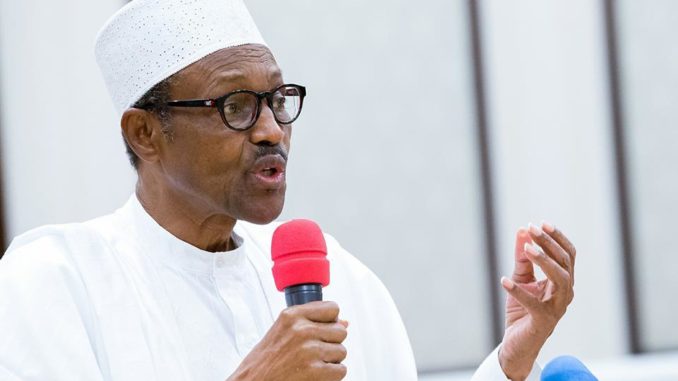
A rift between two top government institutions is threatening to sink President Muhammadu Buhari’s crusade against corruption. Specifically, the Economic and Financial Crimes Commission and the office of the Attorney-General of the Federation are at war over the procedure for the prosecution of high-profile corruption cases. While they are wrangling, corrupt elements in the society are exploiting it to regain lost ground. Left unchecked, the feuding might fatally dent Buhari’s avowal to annihilate corruption.
Publicly, the AGF and Minister of Justice, Abubakar Malami, has accused the EFCC and the Independent Corrupt Practices and other Related Offences Commission of “frustrating” the anti-corruption war, but his main target seems to be Ibrahim Magu, the acting EFCC chairman. In an unusual salvo, Malami blamed Magu for working against Buhari’s anti-corruption agenda by the EFCC’s refusal to release the case files of politically exposed persons to his office. Among other accusations, Malami fumed that the EFCC had “manipulated and misused intelligence to the detriment of the fight against corruption and financial crime in Nigeria.” This is a weighty allegation, but fighting systemic corruption goes beyond Magu just doing the bidding of an AGF.
Although constitutionally, the AGF’s office is superior to that of the EFCC, an anti-graft crusade is imperilled in a country where public institutions are weak and political office holders exercise undue influence. Undoubtedly, Nigeria and Malami typify this. He is cavilling. To point accusing fingers solely at the EFCC for the lack of progress in the anti-graft war does not add up. Conversely, subjecting the crusade to the whims of transient political office holders evokes apprehension because of the unpalatable questions that dog the performance of recent AGFs.
Malami, who seeks to oversee the high-profile cases, is following the footsteps of his controversial predecessors. His office suddenly withdrew the case involving the Senate President, Bukola Saraki, and his deputy, Ike Ekweremadu. Saraki and Ekweremadu were on trial for allegedly forging the Senate standing rules for their election to the two posts in June 2015. That is not all.
In February, the government contentiously withdrew the charges of corruption against three top officials of the Supreme Court without giving any cogent reason. Legal experts had argued that the government had a watertight case. Another case involving a minister in the erstwhile administration that preceded Buhari’s was also unilaterally yanked off mid-trial. The allegations against the officials are grave, but the chance to punish crime got lost in political expediency. Properly executed, they would have laid down a marker for those entangled in the web of sleaze.
Sadly, AGFs before Malami played controversial roles in the fight against corruption. Contentiously, Michael Aondoakaa and Mohammed Adoke, the two AGFs that preceded Malami, took over several corruption cases and eventually degraded the trials. Indeed, the pioneer chairman of the EFCC, Nuhu Ribadu, had accused Aondoakaa of killing the anti-corruption war under the late Umaru Yar’Adua government by his meddlesomeness. One of the delayed cases being cited by Malami against Magu, that of a former governor of Abia State, Orji Kalu, was disrupted controversially under a previous AGF when his office caused the Director of Public Prosecutions to ruin the EFCC’s case.
With a complicit judiciary, that case, just like those of other ex-governors, had been in a limbo since 2007 when they vacated office. Under Adoke, the government also contentiously resolved cases against Siemens and Halliburton, which had both been found guilty by their home governments for engaging in corrupt practices in Nigeria. In all, the AGF’s office withdrew about 25 high-profile cases of corruption controversially, according to a tally by civil society organisations.
Malami might be standing on a legal high ground, but fighting systemic corruption requires professionalism, detachment and freedom from civil service encumbrances and political influence, as several countries have discovered. Just like Nigeria, Singapore, which was ranked seventh (out of 176) in the 2016 Corruption Perception Index of Transparency International, was once a citadel of corruption. The game-changer came in 1959, when its Corrupt Practices Investigation Bureau was unyoked from political control and given independence. The key, according to experts, was that the CPIB started reporting directly to the Prime Minister’s Office. Free of political restraints, it has transformed that Asian Tiger into a bastion of rectitude.
If Buhari treasures his anti-corruption crusade or the legacy he wants to bequeath to Nigeria, he should adopt similar measures that will unshackle the EFCC from political influences undermining it. Hong Kong learnt the bitter lesson in 1973 after a major corruption scandal. The Hong Kong authorities were forced to critically study and adopt the Singapore model, after discovering that their Asian neighbour reined in corruption because of the CPIB’s independence. We advocate this approach because it will stand the test of time, notwithstanding the party in power.
The EFCC, in spite of Malami’s distraction, secured 340 convictions in the six months to June 2017, according to Magu. To make a headway in high-profile cases, it should not be left to the dictates of the AGF’s office. Rather, the President should coordinate it by giving Magu the necessary support he needs to succeed.
Buhari should reclaim his mantra to oust corruption by streamlining the petty contests for power play among the EFCC, the State Security Service and the AGF’s office. He could use the Vice-President Yemi Osinbajo, a Senior Advocate of Nigeria, to reform the judiciary, as he did when he was the attorney-general of Lagos State.
END

Be the first to comment